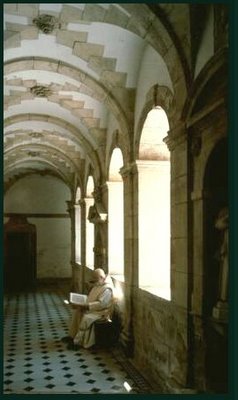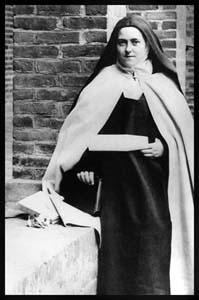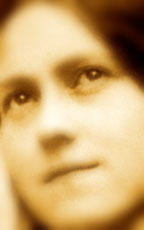When God Calls...
 "God calls in very different ways. A reliable sign of a vocation is if one feels in his heart God's invitation to surrender himself to God alone. An invitation is not a command! Just as in marriage the decision involves both concerned, so a response to a religious vocation must be made in a spirit of freedom and generosity."
"God calls in very different ways. A reliable sign of a vocation is if one feels in his heart God's invitation to surrender himself to God alone. An invitation is not a command! Just as in marriage the decision involves both concerned, so a response to a religious vocation must be made in a spirit of freedom and generosity.""The Carthusian Order was founded 'to the praise of the glory of God' that He might 'unite us to Himself in intimate love' and so we bear abundant fruit. This is the goal of every Christian life; what makes our Order special is that we have no other goal but this. The entire life in Charterhouse is geared to this one aim, that members might 'the more ardently seek, the more quickly find, the more perfectly possess God himself' and so attain the 'perfection of love' (Rule 1,4). Therefore, we renounce all that does not help us attain that one thing necessary.
 Separation from the world
Separation from the world
"'Since our Order is totally dedicated to contemplation, it is our duty to maintain strictly our separation from the world; hence, we are freed from all pastoral ministry - no matter how urgent the need for active apostolate is - so that we may fulfill our special role in the Mystical Body of Christ' (Rule 3,9).
Prayer "We have no special prayer method, technique or recipe; the only way is Jesus Christ.
"We have no special prayer method, technique or recipe; the only way is Jesus Christ.
"In the contemplative life it is not so much what we do but what God does in us.
"Our task is only to purify our longing of all that is not God, to practice 'to allow God to enter through all doors and passages of the heart' (Rule 4,2) and to permit Him to love us as He wills.
Liberty
"The holy liberty is characteristic of our vocation. The Orders rule prescribes only few prayer or devotional exercise other than the sacred liturgy, so that each - under the guidance of the Holy Spirit and with the help of the superior or spiritual director - may freely choose which means suits him to best attain the goal. On the other hand, whatever might hinder him or prove unprofitable, needs to be let go off, however good and holy it might be in itself.
 Obedience
Obedience
"The greatest hindrance in the search for God is without doubt one's own will, the individual 'I'. This we attempt to sacrifice with the help of obedience, which must - if it is to be complete - even extend to one's personal judgment. Such a thorough emptying of oneself enables us to open ourselves to the operation of the Holy Spirit with childlike simplicity and abandon; at the same time, this relieves us from all kinds of unrest, distress and worry about self.
 Faith
Faith
"Our life takes place in the darkness and light of Faith. In solitude, we enter the depths of our Faith, which we have received from the Church. With time, the darkness of Faith changes into the light of Faith. We do not see what we believe, although the content of Faith becomes to us so present that we can live from it. When we renounce all that is not in conformity with Faith, we come to know the depth and splendor of that, which lives in our hearts.
Joy "'Only those who have experienced the solitude and silence of the wilderness can tell what benefit and divine joy they bring to those who love them. Here strong men can be recollected as often as they wish, abide within themselves, carefully cultivate the seeds of virtue, and be nourished happily by the fruits of paradise. Here one can acquire that eye which, with its clear vision, wounds the Spouse with love, whose pureness can see God. Here they can dedicate themselves to leisure that is occupied and activity that is tranquil. Here, for their labor in the contest, God gives his athletes the long-desired reward: a peace that the world does not know and joy in the Holy Spirit' (St. Bruno, founder of the Carthusian Order", whose memorial is celebrated today).
"'Only those who have experienced the solitude and silence of the wilderness can tell what benefit and divine joy they bring to those who love them. Here strong men can be recollected as often as they wish, abide within themselves, carefully cultivate the seeds of virtue, and be nourished happily by the fruits of paradise. Here one can acquire that eye which, with its clear vision, wounds the Spouse with love, whose pureness can see God. Here they can dedicate themselves to leisure that is occupied and activity that is tranquil. Here, for their labor in the contest, God gives his athletes the long-desired reward: a peace that the world does not know and joy in the Holy Spirit' (St. Bruno, founder of the Carthusian Order", whose memorial is celebrated today).
Text from the website of
the Pleterje Charterhouse Carthusian monastery in Slovenia
http://www.kartuzija-pleterje.si/
(adapted from a previous post)



